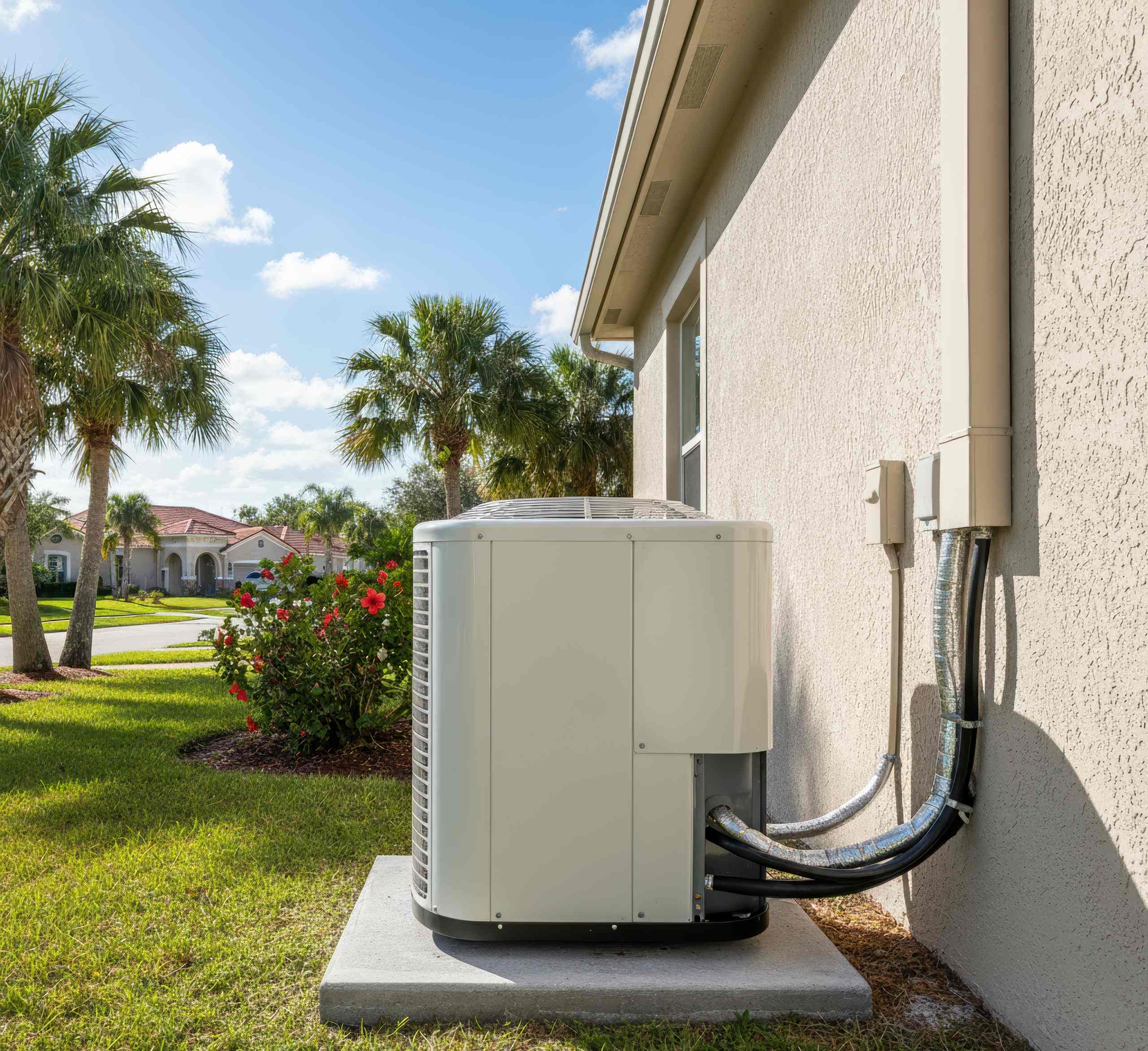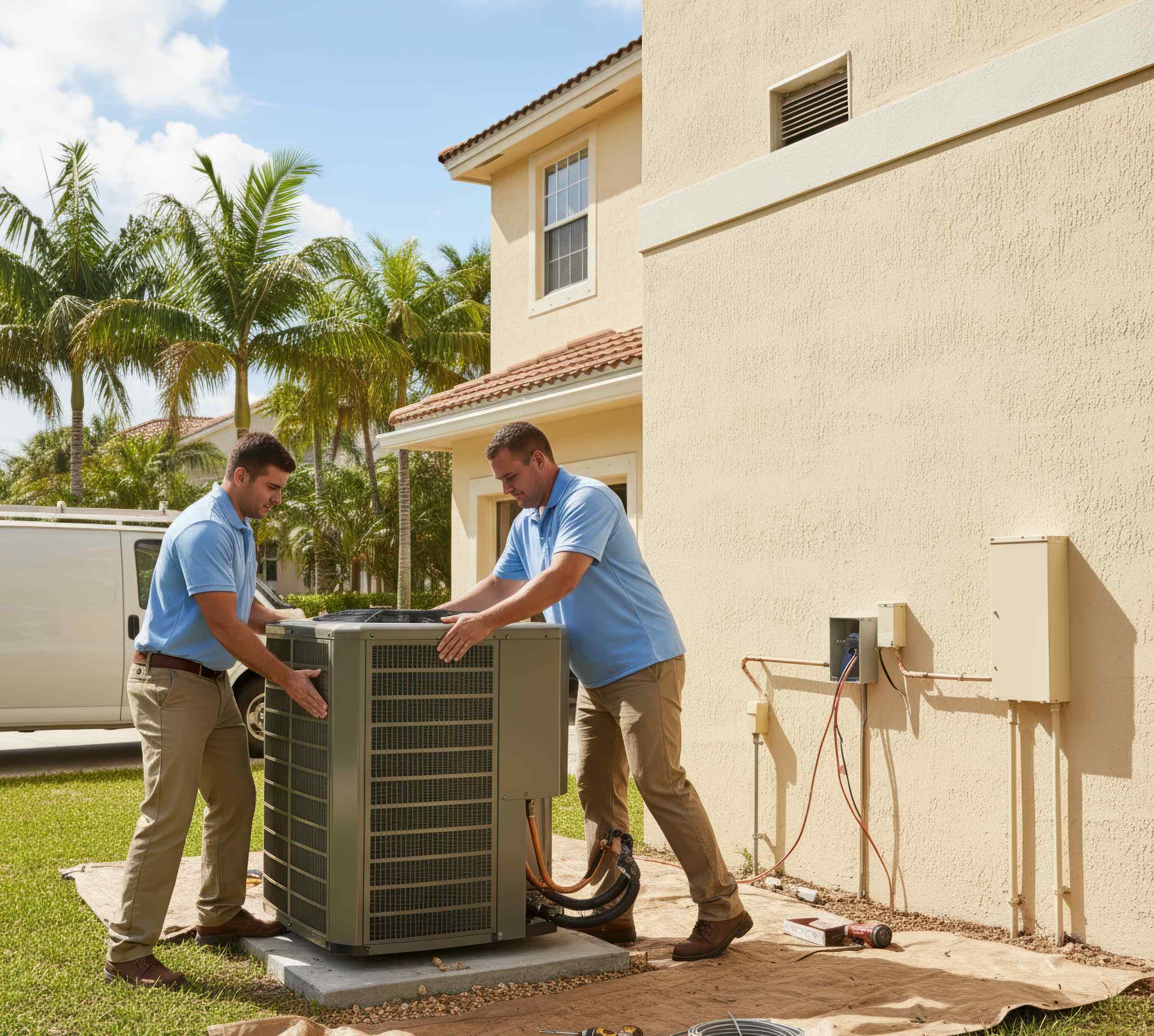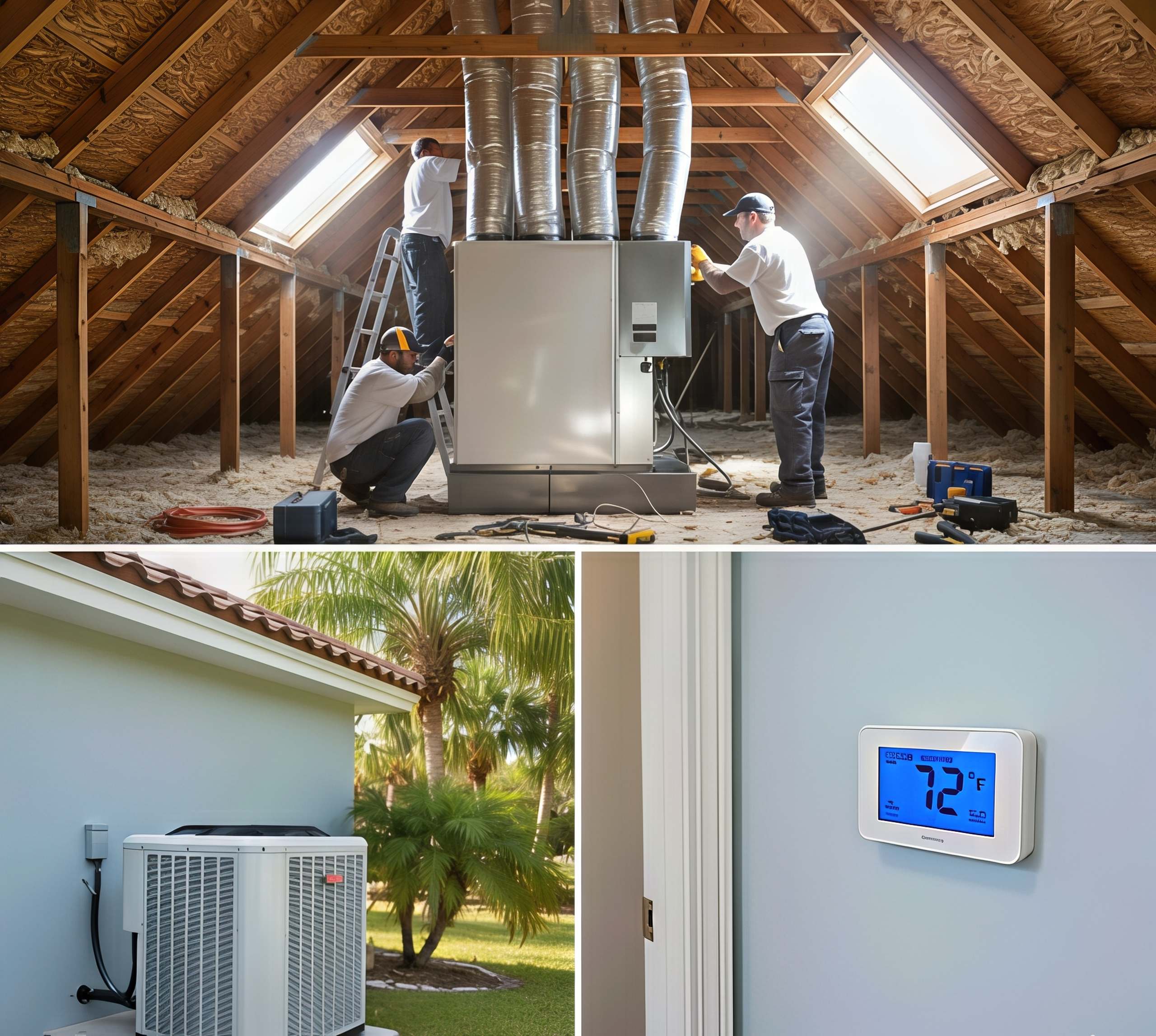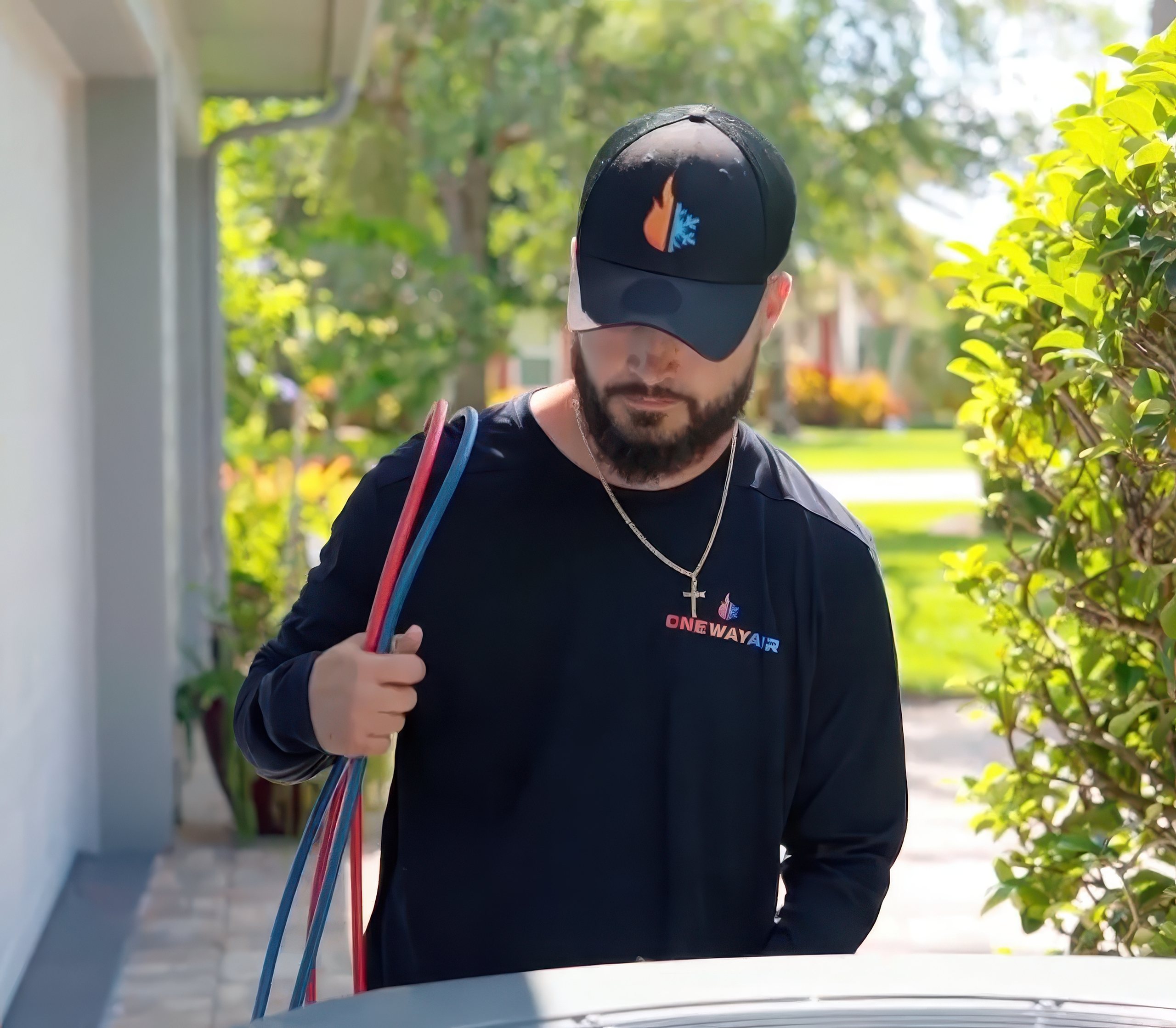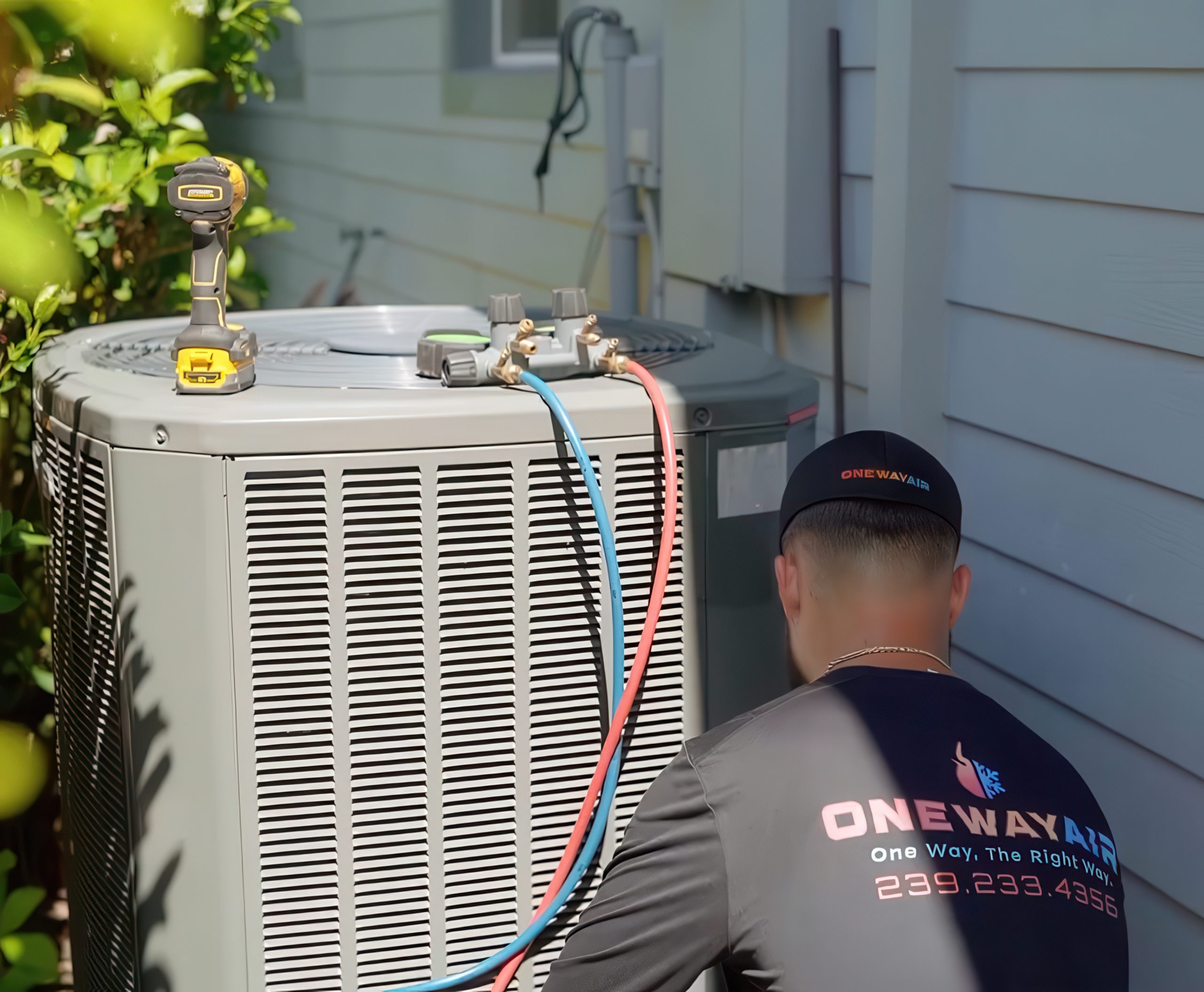If your air conditioning stops working because of a tripped circuit breaker, you’ll want to find out what’s causing the problem—even if the AC starts up again with no problem when you reset the breaker.
If the breaker trips repeatedly, something’s wrong. It could be a problem with the electrical wiring, one or more components of the AC system or the circuit breaker itself.
The good news is that if your AC is tripping the circuit breaker, it usually has a simple explanation and is not going to cost you a million dollars in AC repairs.
Here’s what you need to know to troubleshoot and fix this AC problem…
What is an AC circuit breaker?
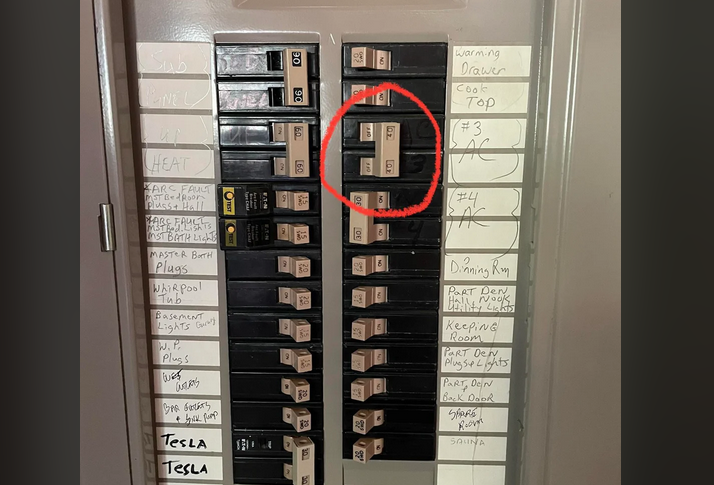
All homes have circuit breakers. They’re essential safety features not only for an efficient AC system but for the safety of all electrical appliances and systems in the home.
The circuit breaker is usually housed within the main electrical panel or in a wall-mounted switch box or cabinet. Its function is to protect the home against electrical overloads and short circuits.
The AC breaker consists of two parts: a circuit breaker switch, which will cut the power off if it senses danger, and a trip indicator that will inform you if the switch has been tripped.
If there is an overload or a short-circuited wire that could cause a fire hazard or damage an appliance, the breaker will cut the electricity to that device. A “short” is where electricity bypasses its normal path, allowing more electricity to flow than the wires can handle. This can cause the wires to overheat, melt, and potentially lead to a fire.
Before this happens, the switch on the breaker board for the affected device should automatically go to the OFF position and stop the flow of current to the device.
Generally, simply resetting the switch to the ON position will restore electricity to the device or appliance.
STAY COOL ALL YEAR ROUND WITH ONE WAY AIR…
The team at One Way Air installs, services, and repairs all types of air conditioning systems in Southwest Florida. Get in touch with us here for a quote or call 239-233-4356 in emergencies.
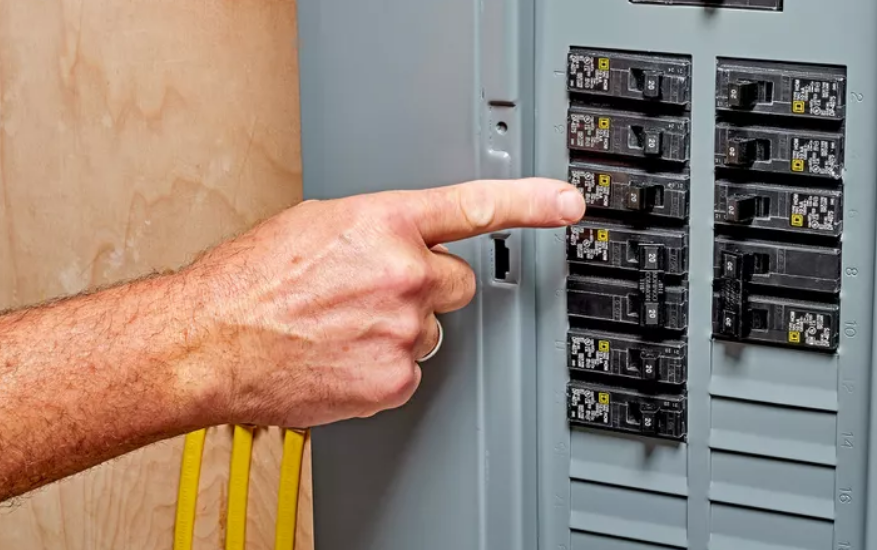
Nine possible reasons your AC is tripping the circuit breaker
As an isolated incident, a tripped circuit breaker may not be too much to worry about—though you might still want to troubleshoot.
If it happens once, however, it’s likely to happen again if nothing is done. If it happens more than once in quick succession, it should certainly be investigated.
Here are the leading reasons why air conditioning systems trip circuit breakers—so that you know what to look for when troubleshooting your AC:
1. Loose or damaged electrical wiring
The problem may be nothing more than a loose electrical wire but locating that wire in a maze of other wires within the metal plate that houses them is a job for electricians or AC professionals.
Electrical wires can become loose or damaged for many reasons, including simply age. At some point, however, the problem is likely to trip the breaker and cut off the electricity supply to your cooling system.
You may be able to inspect the visible wiring but any fix for this issue is best left to a qualified AC professional.
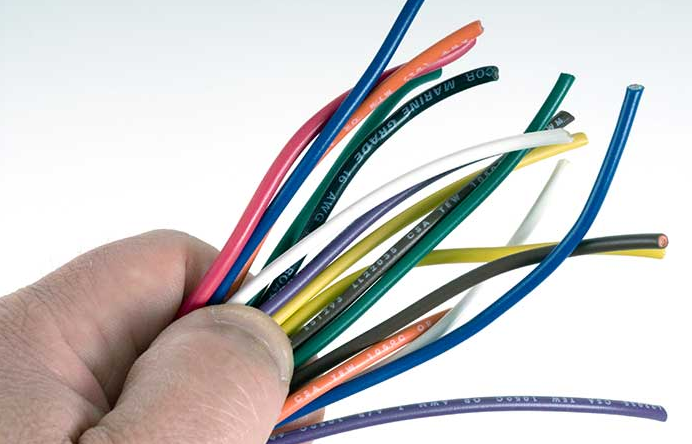
2. Short circuit from faulty wiring or a damaged AC unit
Faulty wiring can also cause a short circuit, where excessive current flows through the circuit and, as a safety mechanism, the breaker will trip and the electricity supply to the device is shut off.
One problem for aging systems is a “grounded compressor” or “compressor short to ground”. This is where an electrical winding inside the compressor breaks and hits the side of the compressor, causing a direct short to ground. This leads to a “burnout” and a tripped circuit breaker.
Again, this issue must be addressed by a qualified electrician or AC pro. In the worst-case scenario, the compressor may need replacing, which can be pricey.
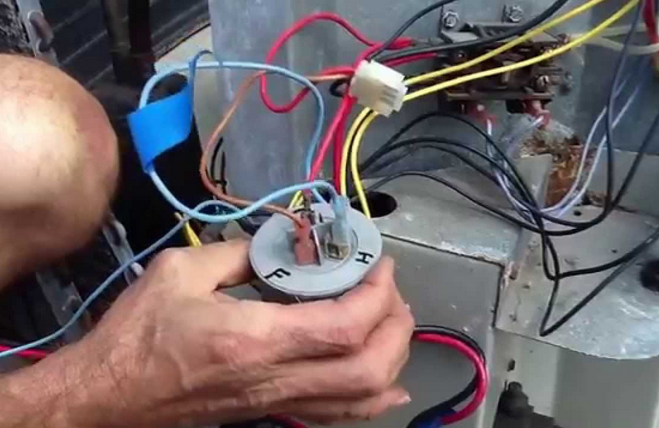
3. A dirty air filter
Dirty air filters are the root cause of a range of problems with air conditioning systems.
Cooling systems rely on the free flow of air for efficient performance. If the airflow is obstructed by anything—usually a dirty filter—this impacts performance and may cause the system to overheat, drawing excessive electricity as it works harder. This can trip the circuit breaker.
Before you get to this stage, a dirty air filter may cause other notable problems like the AC not blowing cold air or cooling your home properly.
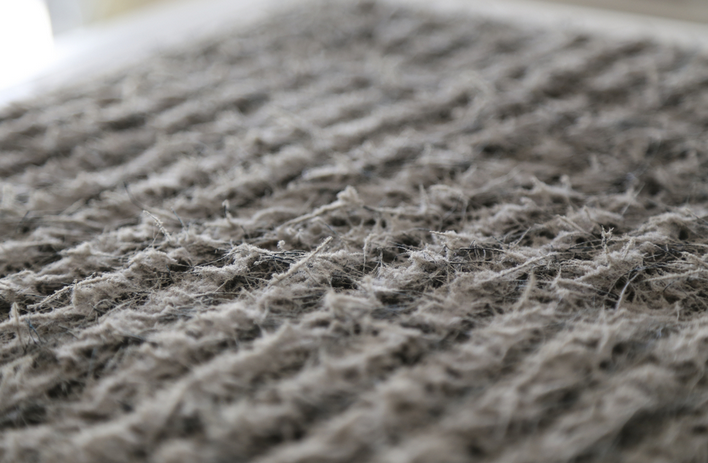
4. A dirty condenser coil/outside unit
Condenser coils sit in the outside compressor unit of central and split air conditioning systems.
The condenser’s job is primarily to release the heat that is absorbed by the evaporator coil (in the inside unit) to the outside of the home.
If the condenser coils are dirty, they become less efficient at performing this essential task, causing the AC to work harder and demand more current to disperse the heat, potentially shorting the circuit and tripping the breaker.
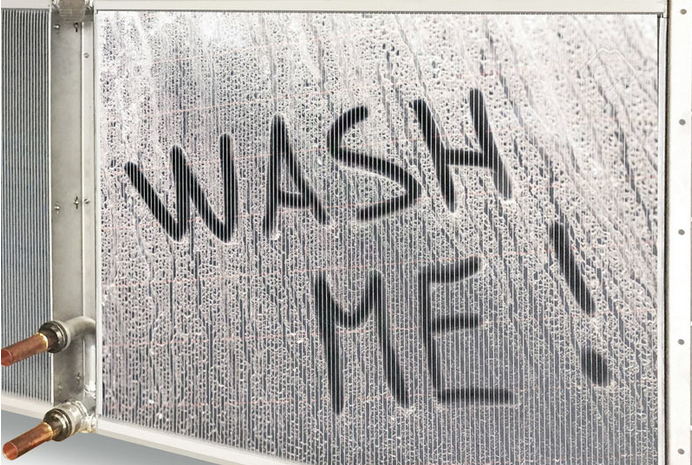
5. The compressor is not starting
Another potential issue with the outside unit that can trip the AC breaker is if the compressor is not starting.
The compressor requires a lot of electricity to compress refrigerant vapor, a process that helps transfer heat from the refrigerant (the liquid that cools the air) to the condenser (the inside unit that removes heat and moisture from the air).
If the compressor is aging, it may start to encounter problems. For instance, there can be a problem with electricity flow between the coil fan and the circuit.
“Hard starting” is another potential issue that can cause the AC circuit breaker to trip. This is when the compressor has trouble starting. If it takes more than one second to start once the AC is switched on, it may be pulling excessive electricity from the circuit and trip the breaker.
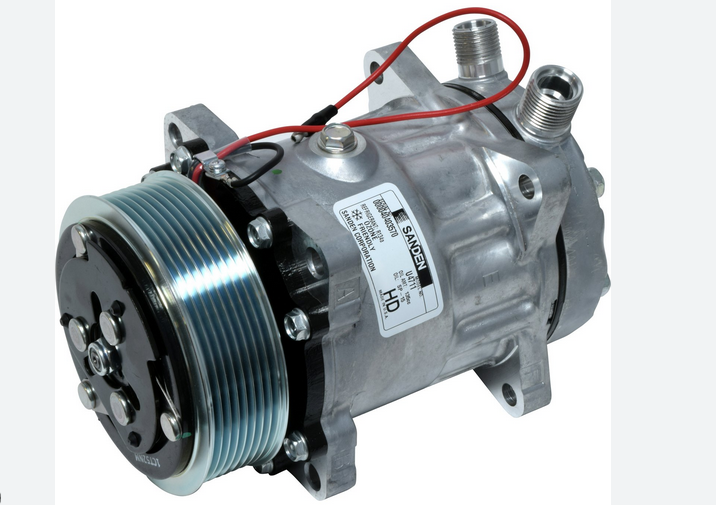
6. A frozen evaporator coil
The evaporator coil is located in the inside unit of your AC system. Its primary job is to absorb the heat from the air inside your home, working in tandem with the condenser coil in the heat exchange process that cools your home.
If there are impediments to proper airflow in the cooling system, the evaporator coil can become frozen, the system can become overloaded, and the circuit breaker can trip.
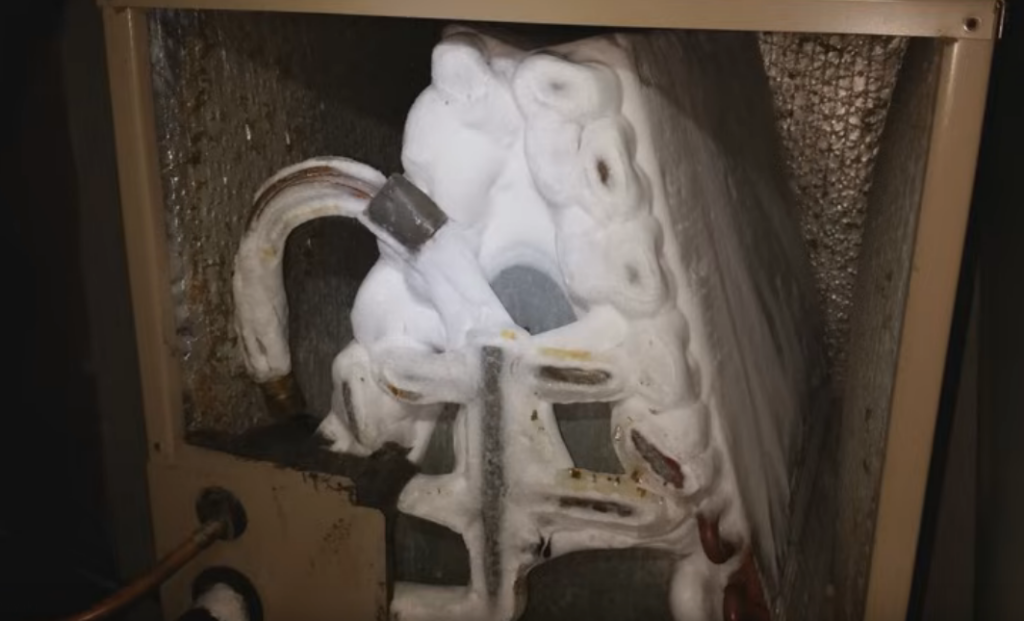
7. Motor issues
The motors in your cooling system are its heartbeat, powering all functions and ensuring that all the components work together to efficiently cool the home. Most times, in systems that are operating efficiently, they run and run without issue.
However, if a motor shorts from a fault or runs too long, the wiring or the motor itself may start to experience problems, the AC breaker may trip from a short, and everything stops working.
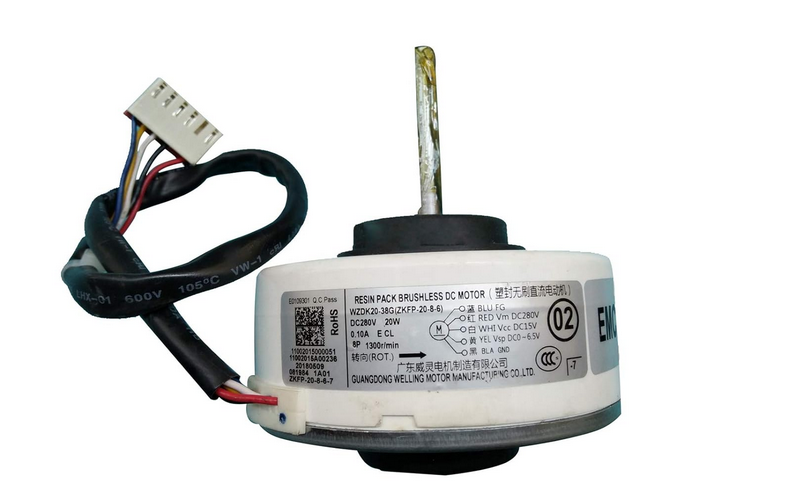
8. Too little refrigerant in the system
Refrigerant is the lifeblood of your AC system and it needs to flow in sufficient amounts for efficient cooling of your home.
If there is a leak in the system, it needs repairing so that suitable refrigerant levels are maintained and there is sufficient “cooling power” in the air conditioning. If your AC is tripping the circuit breaker, this could be the culprit.
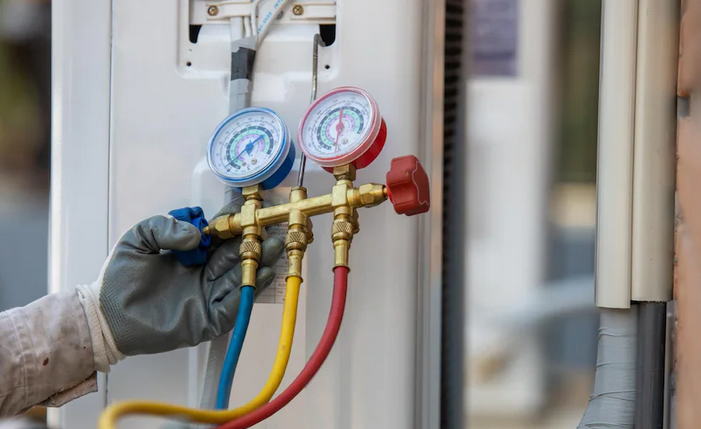
9.Problems with the breaker
Dust accumulation on the AC breaker can lead to problems with the breaker itself rather than the AC unit.
Another potential breaker issue is loose wiring to the unit or an aging breaker that no longer performs to the required level.
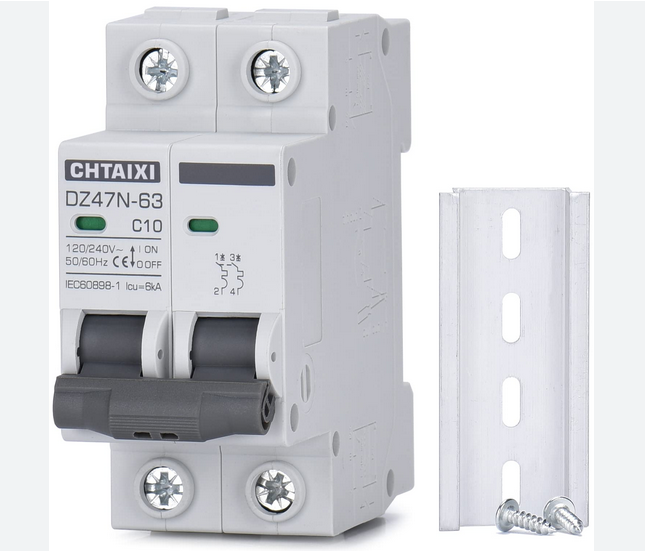
How to fix an AC circuit breaker issue
Cleaning or replacing an air filter or keeping the area around the outside unit free of debris and vegetation are simple AC maintenance steps that homeowners can look after themselves.
If you’re lucky, this alone will fix your AC breaker tripping issue. If not, you’ll need the help of a professional AC repair technician.
Change the air filter
You need to clean or replace the air filter in your AC every few months or even more regularly in the summer months in Florida. Whether you clean or replace the filter depends on the type of unit you have.
A clean air filter will improve airflow in the cooling system and increase efficiency, making it less likely that the breaker will trip.
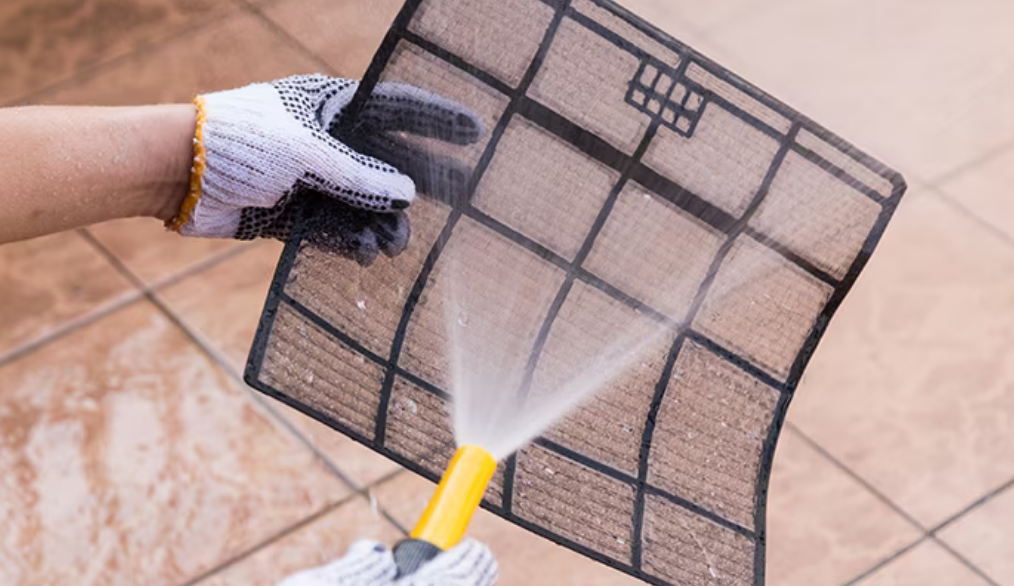
Call an AC repair pro
An AC repair professional will troubleshoot the issue in some depth if necessary and, depending on what’s discovered, initiate the following types of fixes:
- Clean the condenser coils and refrigerant lines: AC condenser coils need frequent cleaning to remove dirt and dust buildup and to maintain efficiency. You can remove vegetation and debris from around the outdoor unit as a DIY job but an AC professional will perform a deeper clean of the coils with the correct equipment (to prevent damage) and also clean the refrigerant lines during a standard AC tune-up.
- Fix or replace the compressor/outdoor unit: if the problem with the outdoor unit is not simply dirt but something mechanical or electrical, the compressor may need fixing or replacing. Replacement can be pricey if the unit is not under warranty, so the technician may instead install a “hard start kit” to help it start up more efficiently.
- Fix any wiring issues: a licensed AC technician is trained in electrical work and will be able to fix any wiring issues that are flagged as a potential cause of your AC tripping the circuit breaker.
- Fix or replace damaged components: if motors or fans are broken and causing the AC to trip the circuit breaker or the evaporator coil is frozen, a professional AC technician can perform the necessary repairs or, worst case scenario, replacement.
- Fix a refrigerant leak and recharge the unit: AC refrigerant should only be handled by a licensed AC technician.
- Test, fix or replace the breaker: the AC technician may need to tighten connections but could recommend replacing or upgrading the breaker so that it can handle your AC system if the problem lies there rather than with the AC itself.
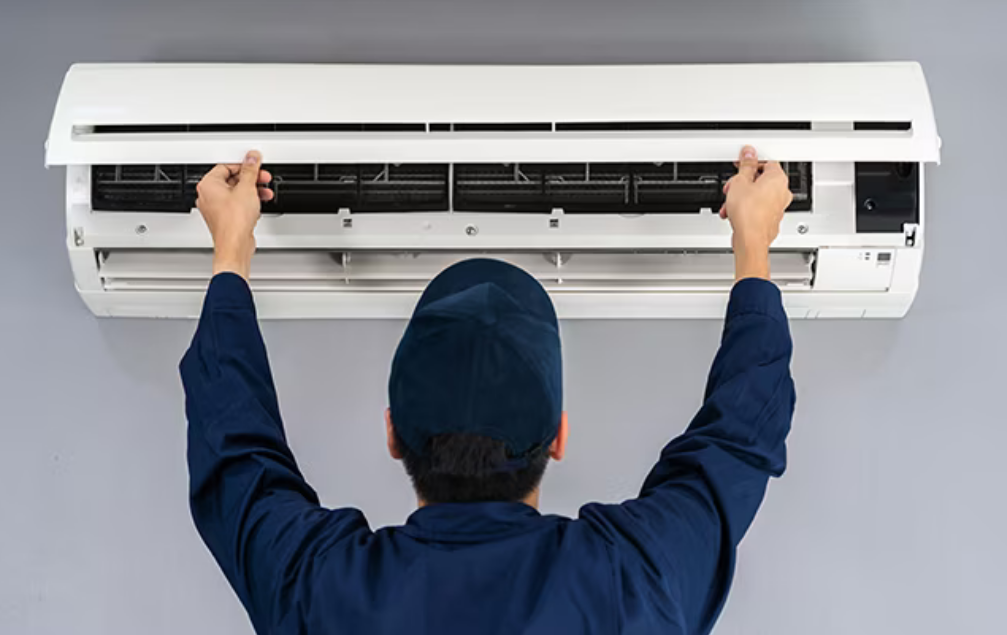
Protect your AC investment
If your AC is regularly tripping the circuit breaker, everything is not alright with your AC and you are risking what is probably quite a substantial investment.
AC is a major cost for Florida homes and it pays to look after it. Constant tripping of the breaker can permanently damage your system or lead to a fire.
You can troubleshoot using some basic steps described above but call the professionals to investigate more thoroughly and repair the AC or replace the damaged component or wiring.
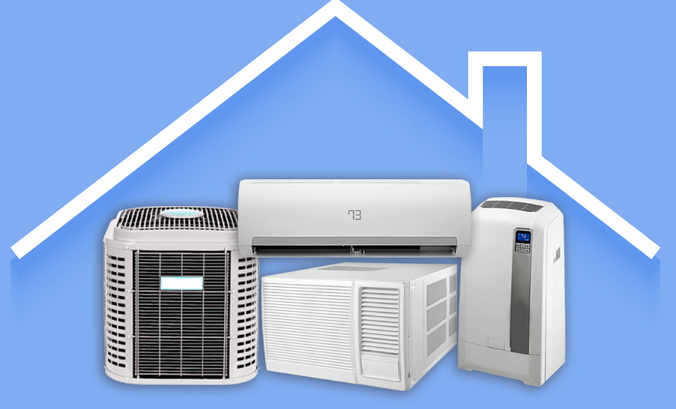
AC tune-ups and repairs in SWFL
If you’re in SWFL and have any issues with your cooling system, contact One Way Air to arrange a full inspection and fix.


